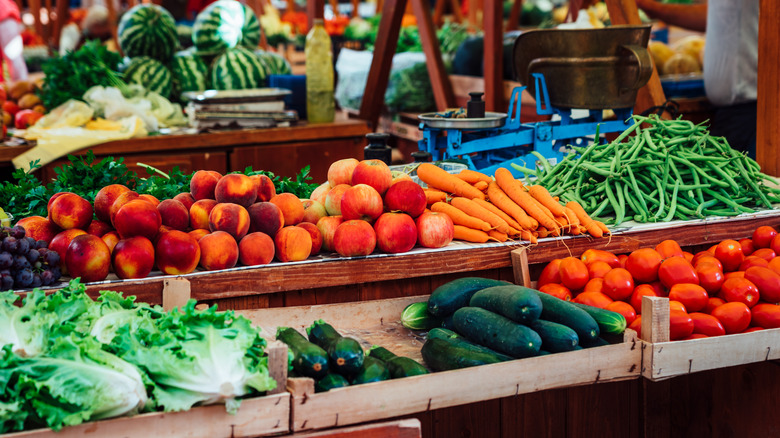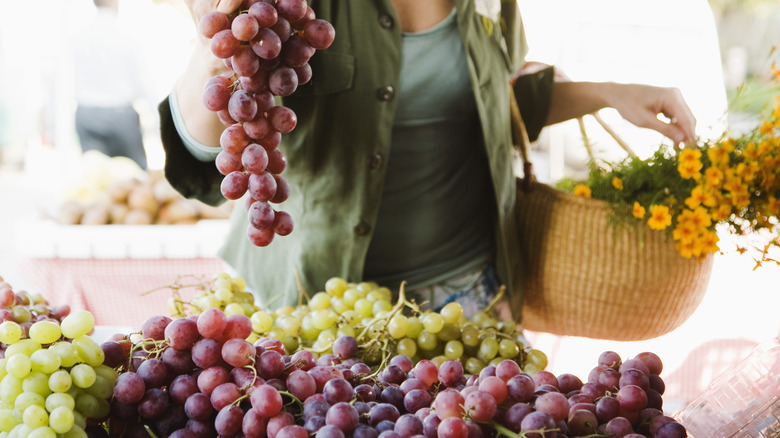How To Shop Your Local Farmers Market Like A Pro
Who doesn't love a good farmers market? It gives you a chance to be outside enjoying the — hopefully nice — weather while browsing for delicious fresh food. Plus, you get to support your local food vendors, and it's typically better for the environment than shopping at a grocery store.
So, with all that in mind, what should you keep in mind while shopping at your local farmers market if you want to get the most out of the experience? To find out, Tasting Table spoke to an expert, chef and farmer John Barker, the co-owner of Forts Ferry Farm in Latham, New York (which you can visit and shop from if you're in the area).
To begin with, Barker recommends not being shy when it comes to interacting with the farmers and vendors. Barker states, "They love questions and love giving advice!" By showing interest and asking for advice, you're only going to better equip yourself to making tasty meals and even branching out with new recipes. Barker added, "Food is fun and to cook well you just need a little confidence, a basic understanding of what you're working with and a hefty dose of common sense."
Ask questions to better understand the quality of your produce
Speaking with the farmers and vendors will give you a better understanding of the ingredients that you're buying in more ways than one — including what exactly "organic" means nowadays. As it turns out, just because something is labeled with that term doesn't mean it's the best option for you.
Barker explained, "The question of 'is this organic' means next to nothing at this point in time because there are so many organic pesticides out there now that vegetables and fruits might be drowning in until the day they are harvested." So, to get a better idea of which foods are the best to buy, Barker explained that there are a few key questions to ask vendors, such as how they handle pest management or what their labor practices are like. You can even ask to visit the farm.
"There are hugely horrible labor practices in farming across the U.S. with exhaustively long days, poor conditions surrounded by many harmful chemicals. At [Forts Ferry Farm] we try to be an example of what is possible in sustainable farming when food is grown by people who don't work more than 45 hours a week, always get two days off in a row and are in a completely chemical free environment." After all, the better the practices, the better you can trust the quality of the food.

